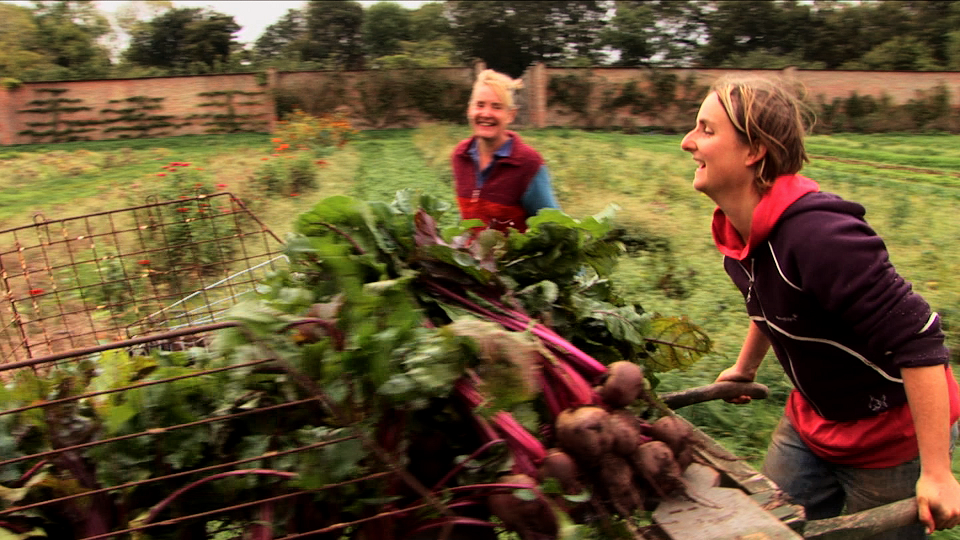
When it comes to food, the term ‘fruits of our labour’ arguably doesn’t often apply to the 21st century citizen. While places such as the Atwater Market showcase local produce during the summer months, it’s safe to assume that most Montrealers purchase their food at major chain supermarkets.
Written, produced and directed by Nils Aguilar, Voices of Transition showcases different and more homegrown examples of food production. In “agribusiness,” there’s a systematic tendency that says “bigger is better”; more machines, more production, more distribution and, ultimately, higher profits. However, this approach has had severely destructive effects on not only the people who consume or once produced the food (such as small-time farmers), it hurts our precious planet. In fact, it is estimated that agriculture accounts for nearly 40% of global warming.
Spanning across parts of France, England and Cuba, this film also investigates the increasingly complicated subject of food production; who makes it, how they make it, how much do they make and waste, and what are the socio-economic and environmental implications of large-scale, global food overproduction and distribution. In Europe, for example, the majority of agriculture subsidies go towards some of the most environmentally unfriendly corporations.
However, many are resisting such wide-scale practices by not only boycotting major supermarkets, but also by simply growing their own food. The eccentric Mike Feingold, a British permaculturist, is shown making his own apple juice and cider. His beliefs lie in “earth care, people care and fair share,” which ultimately brings together environmental, ecological, and societal needs. Feingold is a citizen of Totnes, England, one of a growing number of so-called “transition” towns in which the issues of housing, food production, transportation, and energy are creatively tackled by its citizens in unison, as a community. They attempt to remain resilient against any economic unpredictabilities.
The film encourages such examples of local-based food products and production, in which the fate of every citizen is tied to each other’s input and output, placing a great deal of importance on communal harmony. At the very least, inhabitants living in transition areas learn new skills, such as the means to grow their own vegetables.
The film includes a few breathtaking scenes, such as the south of France in all of its picturesque beauty: rows of redbrick townhouses, ancient chapels and endless miles of golden wheat fields where cattle and horses roam. However, many of these very same farmers have been driven out of business while others have been forced to change their business practices to something less than moral in order to comply with multinational agricultural biotechnology corporations such as Monsanto.
By the second half, this film takes a more optimistic turn, exploring how communities meet their own needs, not by building fences, but by sharing space and working together. Total self-sufficiency isn’t the goal. After all, we live in an interdependent planet; self-reliance is the ultimate objective. The film essentially asks whether the world will continue to march on the same destructive path or create a new, more efficient system built on self-preservation.
Voices of Transition screens Monday Feb. 18 at 7 p.m. in Room H-110, 1455 de Maisonneuve West. For more information, visit www.cinemapolitica.org/concordia



